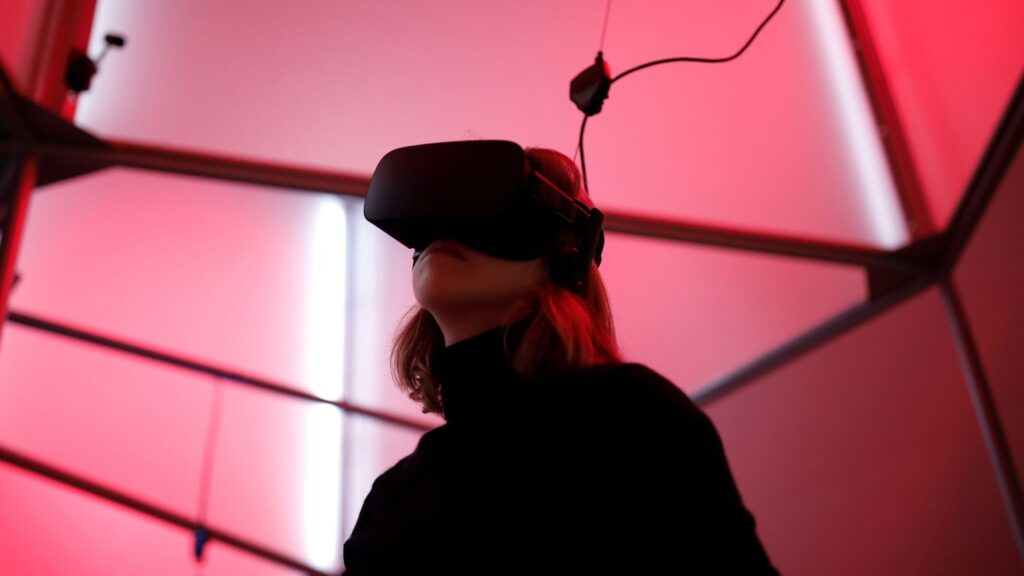
The promise of virtual reality (VR) transforming the entertainment landscape may soon be realized. As of 2025, major technology and entertainment companies are ramping up efforts to make immersive experiences more accessible to consumers. This renewed focus follows years of anticipation since the launch of the Oculus Rift, which many believed would usher VR into the mainstream.
Recent developments indicate that companies like Meta are actively engaging with entertainment giants such as Disney and A24 to create compelling content for VR platforms. According to a report from The Wall Street Journal, Meta is in discussions to develop immersive experiences specifically for its Quest VR headsets. Meanwhile, Apple has rolled out updates for its Vision Pro headset, allowing users to share content with others, making it easier to enjoy movies in 3D settings together.
A paradox exists within the industry: VR headsets require widespread adoption to attract premium content, but without that content, mass adoption is challenging. This cycle has hindered growth, but advancements in technology have made VR devices lighter and more powerful. In a recent statement, Sarah Malkin, director of entertainment content for Meta’s VR division Reality Labs, expressed optimism about breaking this cycle. “I think the ‘it moment’ is when you are regularly engaging in experiences in mixed reality that are super complementary and part of your integrated life,” she told CNN.
Market Trends and Industry Investment
The global market for augmented reality (AR) and VR headsets is showing signs of growth. According to IDC, global shipments of AR and VR headsets increased by approximately 10% in 2024 to reach 7.5 million units. In the United States, shipments rose nearly 30.8% to 3.4 million. Although IDC anticipates a decline in shipments this year due to delayed product launches, a significant rebound is expected in 2026 with a projected increase of 98.5%, bringing total shipments to 11.3 million units.
Despite promising trends, the industry faces challenges. Meta’s ambitious Metaverse project has incurred a staggering $46 billion loss over three years, and Reality Labs reported an operating loss of $4.2 billion alongside only $412 million in sales in the first quarter of 2025. Nevertheless, major players are continuing to invest in VR technology. For instance, Meta has committed $3.5 billion to eyewear manufacturer EssilorLuxottica SA to enhance its AI spectacles initiative.
Companies like Snap and Google are also making strides in the space, with Snap planning to launch new augmented reality spectacles next year and Google collaborating with partners like Xreal and Samsung for upcoming headsets powered by its new Android XR software.
Content Creation and Audience Engagement
Despite the investment and technological advancements, immersive storytelling has not yet achieved widespread popularity. Industry experts emphasize that successful content for VR cannot simply replicate existing formats from platforms like Disney+ or Netflix. As Jenna Seiden, an industry consultant, explained, “You need to build natively so the audience is going to have a different experience per platform.”
The secret to engaging users may lie in the proven strategy of exclusivity. Seiden noted that platforms like HBO Max and Apple TV+ grew their audiences by offering unique content. This model could be adapted to VR, presenting a new avenue for content creators aiming to capture consumer interest.
Sports events are particularly well-suited for immersive experiences. Paul Raphaël, co-founder of Felix & Paul, highlighted that live sports can be easily adapted for VR platforms using 180-degree cameras. This adaptability presents a straightforward opportunity to create engaging content as audience numbers grow.
As the media landscape continues to evolve, the introduction of VR could serve as a much-needed distribution platform for the entertainment industry. In light of recent challenges, including the decline of cable subscriptions and the impact of COVID-19 on box office revenues, VR may provide an innovative solution for studios seeking new revenue streams.
Despite the hurdles, there are signs of optimism regarding future VR adoption. Investment in mixed reality technologies is slowly increasing, with venture capitalists showing renewed interest. While funding for VR peaked at $4.087 billion in 2021, it fell to $347.69 million by 2025. In contrast, investments in AI surged from $39.96 billion in 2019 to $105.36 billion by 2025. The landscape is changing, and industry insiders like Bertrand Nepveu believe that as the potential of AI becomes clearer, funds will increasingly flow back into XR technologies.
The challenge remains not just in creating compelling content but also in convincing consumers of the value of VR devices. With the emphasis on Apple’s Vision Pro as a spatial computing tool for work and productivity, the focus may shift from pure entertainment to broader applications.
As industry leaders assess the timeline for VR’s breakout moment, opinions vary widely. Nepveu suggests it could happen imminently, while others forecast a window of one to ten years. Raphaël posits that traditional 2D content may soon feel outdated, drawing parallels to the perception of black-and-white films as a relic of the past.
In conclusion, as technology and content creation converge, the entertainment landscape may soon witness a significant transformation, driven by immersive experiences that capture the imagination of consumers worldwide.







